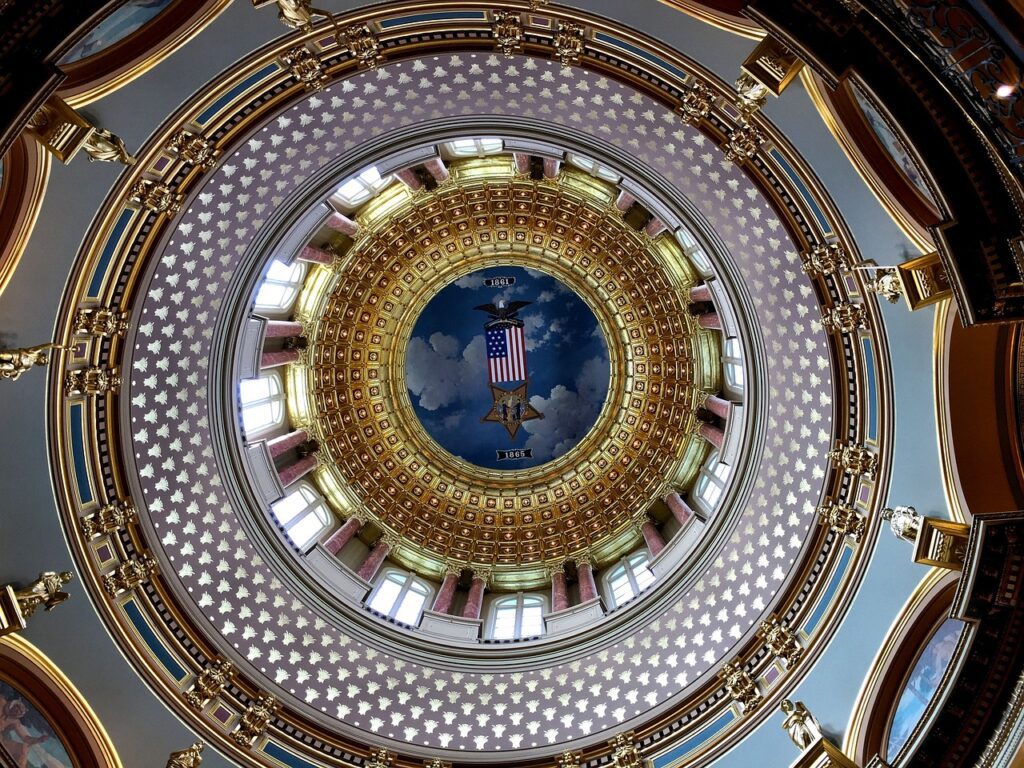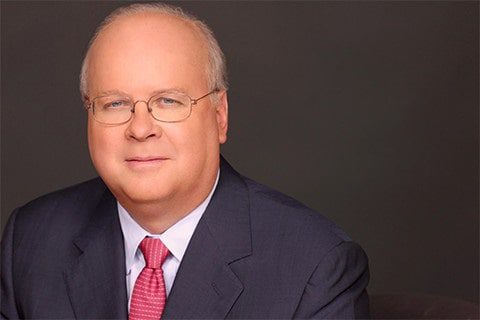
Iowa State Capitol Dome in Des Moines/Photo courtesy of Pixabay.
Opinion
By Karl Rove
Iowa was a historic victory for Donald Trump. He won a majority of votes cast and carried 98 of 99 counties, which no Republican or Democratic presidential aspirant in a seriously contested caucus has ever done. Both his 51% finish and nearly 30-point margin over his nearest competitor were also impressive.
This strong showing sends Mr. Trump into next Tuesday’s New Hampshire primary in better shape than any previous nonincumbent Republican presidential hopeful. He even received a microboost from the end of Vivek Ramaswamy’s vanity campaign. Mr. Ramaswamy’s supporters are likely to move from the mini-me Trump to the real deal.
Still, Mr. Trump was on the edge of a bad night. The Associated Press says he got above 50% by only 1,110 votes. If he hadn’t made it over the halfway mark, critics would have spent the next week hammering that a majority of Republicans rejected him.
Mr. Trump can thank his political advisers—Susie Wiles and Chris LaCivita—for his vote share’s exceeding his 48% showing in the last Des Moines Register poll before the caucus. His team mined valuable data collected from attendees at his roughly 55 Iowa speeches and rallies to build a formidable turnout operation. No past Trump campaign had that kind of meticulous organization.
It’s also notable that the second-place race was so close. Only 2,335 votes separated Ron DeSantis from Nikki Haley, according to AP. Over the past year, Mr. DeSantis’s super PAC knocked on 947,000 Iowa doors, recruited 1,704 caucus captains, and identified 40,000 supporters. In the past few weeks, the super PAC made 268,000 volunteer calls. Without that extensive effort, Mr. DeSantis likely would have come in third. Ironically, his campaign cashiered the officials responsible for this impressive ground game six weeks before the caucus.
There was another interesting number Monday. Only 1 in 6 registered Republicans bothered to caucus. It was the lowest turnout in any contested Iowa GOP caucus since 2000. Roughly 110,000 people participated, down from 187,000 in 2016, 122,000 in 2012 and 119,000 in 2008.
Some of that decline can be blamed on the weather. At 7 p.m. in Des Moines, the wind chill made it feel like 24 below. But GOP leaders should worry the drop-off means that some Republicans are unenthusiastic about 2024.
The winner’s victory speech was another surprise. By his standards, Mr. Trump was measured, gracious, restrained and at points humble and complimentary of his competitors. He said, “I want to congratulate Ron and Nikki,” declared that “I think both actually did very well, I really do” and said that “we’re all having a good time together.” I’m not certain that the candidates Mr. Trump usually calls “Birdbrain” and “DeSanctimonious” would agree. By Wednesday, Mr. Trump was back to insulting Ms. Haley in a series of caustic campaign emails.
On caucus night, the former president also committed his usual error: raging about the 2020 election. He claimed that 82% of Americans don’t believe the 2020 election was “honest.” Not quite. The three-year-old CBS News/YouGov survey Mr. Trump was likely referencing found that 82% of Trump supporters didn’t think Joe Biden was “the legitimate winner,” but 62% of all voters said Mr. Biden was the legitimate president and the election was “over and settled.” If Mr. Trump is the GOP nominee and makes his campaign about 2020, he’ll find out why it was a losing issue for the GOP in the midterms.
It’s still possible, though a long shot, that Mr. Trump won’t get that far. New Hampshire voters like upsetting things by picking someone other than Iowa’s chosen candidate. I can painfully attest to this: The 2000 George W. Bushcampaign finished first in Iowa with 41% of the vote, then lost by 18 points in New Hampshire.
Op-Ed by Mr. Rove, courtesy of rove.com, was first published in The Wall Street Journal.

Karl Rove served as Senior Advisor to President George W. Bush from 2000–2007 and Deputy Chief of Staff from 2004–2007. At the White House he oversaw the Offices of Strategic Initiatives, Political Affairs, Public Liaison, and Intergovernmental Affairs and was Deputy Chief of Staff for Policy, coordinating the White House policy-making process.
Mr. Rove has been described by respected author and columnist Michael Barone in U.S. News & World Report as “…unique…no Presidential appointee has ever had such a strong influence on politics and policy, and none is likely to do so again anytime soon.” Washington Post columnist David Broder has called Mr. Rove a master political strategist whose “game has always been long term…and he plays it with an intensity and attention to detail that few can match.” Fred Barnes, executive editor of The Weekly Standard, has called Mr. Rove “the greatest political mind of his generation and probably of any generation. He knows history, understands the moods of the public, and is a visionary on matters of public policy.”
Before Mr. Rove became known as “The Architect” of President Bush’s 2000 and 2004 campaigns, he was president of Karl Rove + Company, an Austin-based public affairs firm that worked for Republican candidates, non-partisan causes, and non-profit groups. His clients included over 75 Republican U.S. Senate, Congressional, and gubernatorial candidates in 24 states, as well as the Moderate Party of Sweden.

